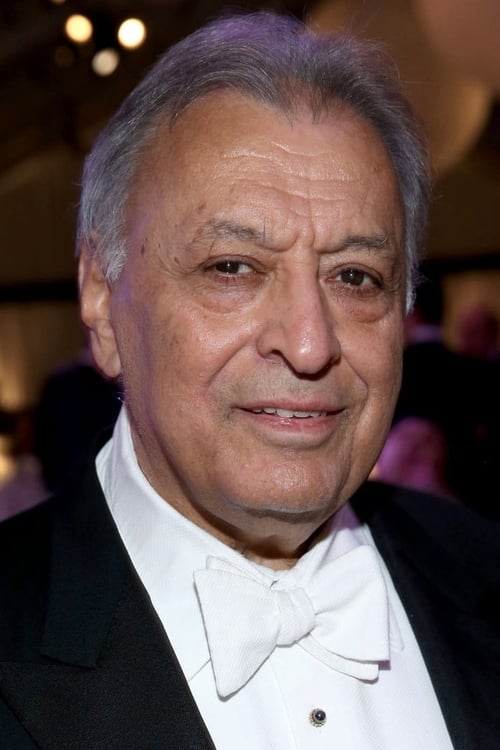
Conductor

Music Director

Musikalische Leitung
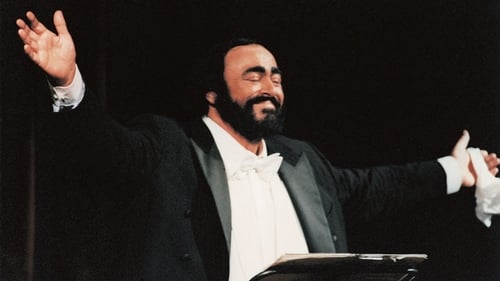
Self
1935年、イタリアに生まれ、パン職人でアマチュアのテノール歌手でもあった父の夢を受け継ぐ形でオペラ歌手への道を歩み、誰もがその名を知る世界的有名人となったパヴァロッティ。そんな彼の絶頂期のパフォーマンスや、ドミンゴ、カレーラスとの三大テノールの伝説的競演、故ダイアナ妃との親交やさまざまなボランティア活動、そして恋多き波乱の私生活などを、数々の貴重な映像と幅広い関係者たちの証言とともに振り返る。

Self - Conductor (archive footage)
When chaos reigns, while barbaric and fanatical rulers, both ecclesiastical and secular, systematically burn entire libraries, book hunters, secret heroes of history, travel the world saving and copying texts, threatened by the madness of censors, with the noble purpose of preventing the ultimate loss of human knowledge.
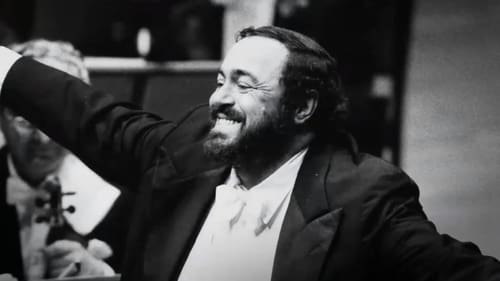
Self
Although he is unanimously credited with having democratised opera, making it accessible to the greatest number, focus is rarely put on the strategy he devised and implemented in order to carry out his actions, nor what his actions reveal of the man and artist, and of the resulting metamorphosis from opera singer to pop artist. Through this angle, this film sets out to pay tribute to the man who summed up his credo, obsession and life’s work, in the following way: “They led the public to believe that classical music belonged to a restricted elite. I was the way to prove to the world that was wrong.

Conductor
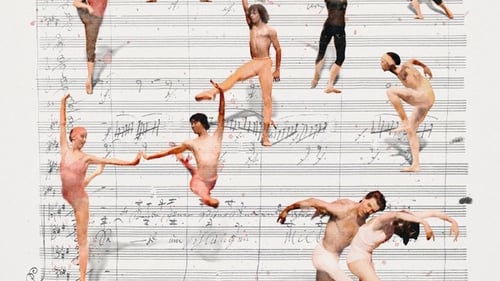
A journey through the preparation and hardworking process of ballet dancers and musicians for a unique spectacle in Tokio that Béjart choreographed with the Ninth symphony of Beethoven. Béjart ballet dances with Tokio ballet and the Philharmonic Orchestra of Israel. A marvellous combination of dancers movements and expression of different feelings along the four movements of the symphony with absolute elegance and strength.
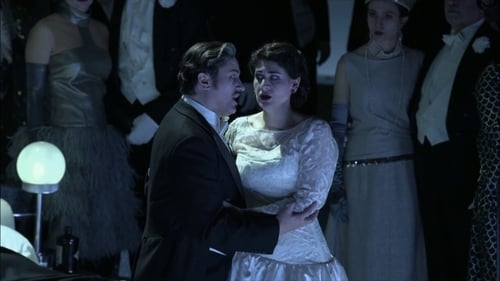
Conductor
Recorded at Bayerische Staatsoper on March 3-9, 2016.

Conductor
Vivaldi, Mozart, and Beethoven serve up an evening of glittering virtuosity and transcendent melody in this unusual, all-concerto program. Filmed at Tel Aviv’s Mann Auditorium in July 2015. Zubin Mehta leads the Israel Philharmonic Orchestra as they accompany three very different 18th-century concertos performed respectively by trumpeters Ram Oren and Yigal Meltzer, clarinettist Ron Selka, and pianist Khatia Buniatishvili. Set-List: Antonio Vivaldi, Concerto for 2 Trumpets in C Major, RV 537 / Wolfgang Amadeus Mozart, Clarinet Concerto in A Major, K. 622 / Ludwig van Beethoven, Piano Concerto No. 1 in C Major, Op. 15.

Himself - Conductor
Vivaldi, Mozart, and Beethoven serve up an evening of glittering virtuosity and transcendent melody in this unusual, all-concerto program. Filmed at Tel Aviv’s Mann Auditorium in July 2015. Zubin Mehta leads the Israel Philharmonic Orchestra as they accompany three very different 18th-century concertos performed respectively by trumpeters Ram Oren and Yigal Meltzer, clarinettist Ron Selka, and pianist Khatia Buniatishvili. Set-List: Antonio Vivaldi, Concerto for 2 Trumpets in C Major, RV 537 / Wolfgang Amadeus Mozart, Clarinet Concerto in A Major, K. 622 / Ludwig van Beethoven, Piano Concerto No. 1 in C Major, Op. 15.

self
Zubin Mehta is one of the most charismatic conductors of our time. A citizen of the world with many facets: Indian culture and Parsi spirituality, North American lifestyle and European musical tradition. The portrait accompanies Zubin Mehta to current places of activity and important stages of his life. [arte.de]

Conductor
The first-ever recording on film of Maurice Béjart's Ninth Symphony! Fifty years after its premiere, the Tokyo Ballet and Béjart Ballet Lausanne present Maurice Béjart’s groundbreaking choreography to Beethoven’s Symphony No. 9 in Tokyo's NHK Hall. With nearly 200 artists on one stage, Beethoven’s score was performed by the Ritsuyu-kai Choir, the soloists Kristin Lewis, Mihoko Fujimura, Kei Fukui, and Alexander Vinogradov, and the Israel Philharmonic Orchestra conducted by Zubin Mehta.

Conductor
Any performance of Giuseppe Verdi’s Aida at La Scala, Milan, is guaranteed to be an experience – but, when it’s a new production, it becomes a major event, especially given the theatre’s notoriously critical audience. Legendary stage director Peter Stein succeeds in delivering a lucid production acclaimed in equal measure by the press and public: “a perfect coup de théâtre” (Giornale della musica). A “stellar cast” (La Stampa) contributes to the production’s success under the musical direction of Verdi specialist Zubin Mehta, who leads the orchestra in a “gorgeously colourful performance”, while “the entire ensemble is brilliant in its portrayal of the characters” (Die Presse).

Himself

Conductor

Conductor
This 2013 Salzburg Festival performance of Falstaff, Giuseppe Verdis late masterwork and crowning achievement, features conductor Zubin Mehta and the Vienna Philharmonic. The staging thought up by Italian director Damiano Michieletto moves the action from a fictitious London to that special care home, the Casa Verdi, a place rich in memories of great days past and impressions of a real-time present. Ambrogio Maestri seems a tailor-made Falstaff. His physique is just right for the part, as are his powerful voice, flair for drama and feeling for the Verdi style. (New York Times)
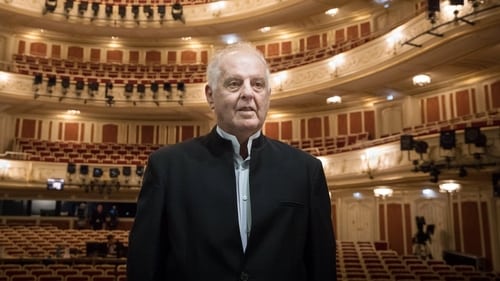
Self
With family and friends present, Daniel Barenboim celebrates his seventieth birthday in the company of Zubin Mehta, and the Staatskapelle Berlin. He starts with Beethoven's Piano Concerto in C minor (No. 3) and ends with Tchaikovsky's Piano No. 1 with an Eliot Carter short atonal piece sandwiched between. Both the Beethoven and Tchaikovsky are exquisitely and passionately performed by Barenboim as he commands the piano and dazzles the audience. The structural composition of each comes alive; especially in the 2nd movement of the Tchaikovsky Concerto when the beautiful Claudia Stein opens with a sad flute introduction repeated by the piano. One marvels at the nuance of the Russian composition played an Argentine Israeli with a German orchestra conducted by a man born in Bombay. Mehta in his marvelous laconic way might be seen as the onlooker but the generous Barenboim does not allow it. He brings in Mehta and makes him part of it at all times.

Self
The suspenseful chronicle of how the prodigious Polish violinist Bronislaw Huberman helped save Europe’s premiere Jewish musicians from obliteration by the Nazis during World War II. In three years, he transformed from a world renowned violinist to a humanitarian racing against time.

Conductor

Conductor
The cast is a dream team wrote the Financial Times after the premiere of this production of Verdis La forza del destino at the Wiener Staatsoper. Topping the list is Nina Stemme, who gives a full-blooded portrayal of Leonora. Passionate forceful readings are also provided by Salvatore Licitra as Alvaro and Carlos Álvarez as Don Carlo. Zubin Mehta leads Staatsoper Orchestra with agility, subtleness and relaxed mastery, and right from the start David Poutney establishes an atmosphere of entrapment by fate. With the aid of a bizarre, unforgettable stage construction, the acclaimed director finds an ideal setting to illustrate the merciless powers of chance and destiny.

Conductor
It has been a long time since the events of Das Rheingold. Wotan has fathered nine Valkyries, warrior women who bring dead heroes to Valhalla (the castle of the Gods). Richard Wagner's dream of a Gesamkuntswerk becomes reality through La Fura dels Baus' visual fantasy and blending of video technology, lighting and props (often formed of human beings): Their 30 computer projections and organic structures built of athletic performers that recall Cirque du Soleil are predestined for Wagner's visionary expressive world.

Conductor
Richard Wagner's dream of a Gesamkuntswerk becomes reality through La Fura dels Baus' visual fantasy and blending of video technology, lighting and props (often formed of human beings): Their 30 computer projections and organic structures built of athletic performers that recall Cirque du Soleil are predestined for Wagner's visionary expressive world.

Conductor
Richard Wagner's dream of a Gesamkuntswerk becomes reality through La Fura dels Baus' visual fantasy and blending of video technology, lighting and props (often formed of human beings): Their 30 computer projections and organic structures built of athletic performers that recall Cirque du Soleil are predestined for Wagner's visionary expressive world.

Conductor
It has been a long time since the events of Das Rheingold. Wotan has fathered nine Valkyries, warrior women who bring dead heroes to Valhalla (the castle of the Gods). Richard Wagner's dream of a Gesamkuntswerk becomes reality through La Fura dels Baus' visual fantasy and blending of video technology, lighting and props (often formed of human beings): Their 30 computer projections and organic structures built of athletic performers that recall Cirque du Soleil are predestined for Wagner's visionary expressive world.

Conductor
In the words of the prestigious German weekly 'Die Zeit,' the stage production of Wagner's 'Rheingold' and 'Walküre' by La Fura dels Baus 'quite possibly shows us the path that musical theater will be taking in the future.' There's no doubt about it: the Catalan city of Valencia is setting new accents in 21st-century opera not only with its spectacular new theater designed by Santiago Calatrava, but also with its visually transfixing production of Wagner's 'Ring' staged by Carlus Padrissa and his theater group La Fura dels Baus.

Conductor
In the words of the prestigious German weekly 'Die Zeit,' the stage production of Wagner's 'Rheingold' and 'Walküre' by La Fura dels Baus 'quite possibly shows us the path that musical theater will be taking in the future.' There's no doubt about it: the Catalan city of Valencia is setting new accents in 21st-century opera not only with its spectacular new theater designed by Santiago Calatrava, but also with its visually transfixing production of Wagner's 'Ring' staged by Carlus Padrissa and his theater group La Fura dels Baus.
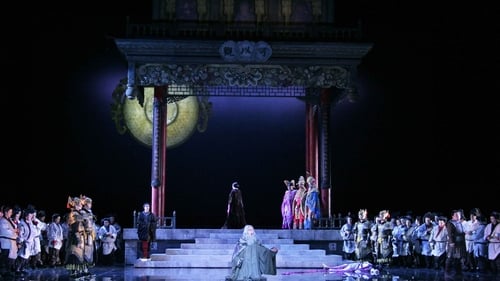
Conductor
Internationally acclaimed Chinese film-maker Chen Kaige delivers an opulent staging of the fairy-tale story of Chinese Princess Turandot, who will only marry a prince capable of solving her riddles. With sumptuous costumes and palace sets designed in China, Kaige's production adds a compellingly authentic accent to Puccini's exotic orchestral palette. Zubin Metha and his brilliant Orquestra de la Comunitet Valenciana offer "genuine foreworks of sound" (Wiener Zeitung), Maria Guleghina triumphs as Turandot. Recorded in 2008 at the Palau de les Arts in Valencia. Zubin Mehta (conductor).

Conductor

Conductor
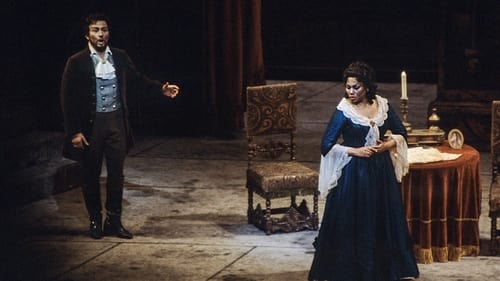
Director

Self
Recorded live at the Frederic R. Mann Auditorium, Tel Aviv, 26 December 2006

Conductor
Ruggero Raimondi and Barbara Frittoli star in this 2006 production of the Verdi opera with Zubin Mehta conducting the Maggio Musicale Fiorentino. Giuseppe Verdi's last opera is given new life in this production by Luca Ronconi. Utilizing the sights and social conditions of modern Britain, this version of Shakespeare's THE MERRY WIVES OF WINDSOR keeps the comedy accessible while still featuring all the elements that have made this opera a perennial favorite.
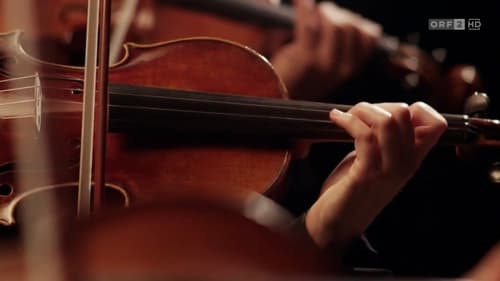
Conductor

Metha performs his 4th New Year's Concert with the Vienna Philharmonic. Included are works by Johann Strauss II, Josef Strass, Joseph Hellmesberger, Johann Strauss I, and Eduard Strauss.
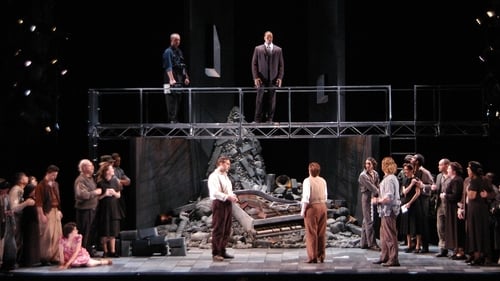
Conductor
Two years prior to the opening scene, the nobleman Florestan has exposed or attempted to expose certain crimes of the nobleman Pizarro. In revenge, Pizarro has secretly imprisoned Florestan in the prison over which Pizarro is governor. The jailer of the prison, Rocco, has a daughter, Marzelline, and a servant (or assistant), Jaquino. Florestan's wife, Leonore, came to Rocco's door dressed as a boy seeking employment, and Rocco hired her. On orders, Rocco has been giving Florestan diminishing rations until he is nearly starved to death. Place: A Spanish state prison, a few miles from Seville Time: Late 18th century

Self
The struggles of the world’s Jewish people over the course of several centuries are expressed and explored through the music they inspired in this documentary from the BBC and Opus Arte. We Want the Light brings together harrowing tales from Holocaust survivors with performances of music by such legendary composers as Mahler, Bach, Mendelssohn, and Brahms. Interviews with: Alice Sommer Herz, Jacques Stroumsa, Evgeny Kissin, Vladimir Ashkenazy, Zubin Mehta, Itzhak Perlman, Pinchas Zukerman, Toby Perlman, Michael Haas, Elyakim Ha’etzni, Norman Lebrecht, Margaret Brearley, Paul Lawrence Rose, Daniel Barenboim, Yirmiyahu Yovel, Uri Toeplitz & Anita Lasker-Wallfisch. Featuring: Gürzenich-Orchester Köln, Cologne Cathedral Children’s Choir & Cologne Opera Chorus.

Conductor
Singspiel in three acts by Wolfgang Amadeus Mozart. The German libretto is by Gottlieb Stephanie, based on Christoph Friedrich Bretzner's Belmont und Constanze, oder Die Entführung aus dem Serail. The plot concerns the attempt of the hero Belmonte, assisted by his servant Pedrillo, to rescue his beloved Konstanze from the seraglio of Pasha Selim. The work premiered on 16 July 1782 at the Vienna Burgtheater, with the composer conducting.

Conductor

Conductor
Turandot at the Forbidden City is a 1998 live production of Puccini's opera Turandot directed by Zhang Yimou. The opera was performed by Giovanna Casolla, Audrey Stottler, and Sharon Sweet alternating as Princess Turandot; Kristján Jóhannsson, Sergej Larin and Lando Bartolini as Calàf; and Barbara Frittoli, Angela-Maria Blasi and Barbara Hendricks as Liù, with Zubin Mehta conducting the Maggio Musicale Fiorentino.

Conductor
Peter Konwitschny's new production on the première stage in Munich gives it a new, optimistic interpretation. At the opening of the Munich Opera Festival 1998, Tristan und Isolde was staged in what is now the ninth new production at the Bavarian State Opera since its world première. Director Peter Konwitschny worked together with stage and costume designer Johannes Leiacker a team already well known in Munich for its much-respected Parsifal. Zubin Mehta conducted, shortly before being called to be General Music Director at the Bavarian State Opera. The title parts were interpreted by the American tenor Jon Frederic West, widely known for his Wagner-roles and Waltraud Meier, one of the greatest Isoldes of our time.

Self
Shot over a two-year period observing Abbado: a) Rossini, Overture to 'll Barbiere di Siviglia' b) Schubert, Symphony no. 2 B-Major, D. 125 c) Arnold Schonberg, Kammersinfonie no. 1 E-Major op. 9 (Filmed in Venice, Gran Teatro La Fenice, in February 1995, Chamber Orchestra of Europe). a) Richard Strauss, Elektra (Deborah Polaski, Karita Mattila, Marjana Lipovsek, Ferrucio Furlanetto) b) Beethoven, Symphony no 6 F-Major, op. 68, 'Pastorale' (Filmed in the Festspielhaus Salzburg on the occasion of the Easter Festival, April 1995, Berlin Philharmonic). a) Beethoven, Concerto for piano and orchestra no. 3 C-MINOR, OP. 37 (Maria Joao Pires) b) Bruckner, Symphony no. 9 D-Minor (Filmed in Paris, Cite de la Musique, in August 1995, Gustav Mahler Youth Orchestra).

Self
The Greatest Love and the Greatest Sorrow is a film which sets out to bring the viewer closer, not to the details of Schubert's life, but to the spirit of what he was trying to express with what he called his creative gift and with which he tried "to brighten the world". The film begins with the funeral of Beethoven, at which Schubert was a torch-bearer, His story is told almost entirely in music written in the twenty months that remained to him after that date, together with quotations from Schubert's letters, diaries and the words that he chose to set in some of his songs. Includes personal introductions by Christopher Nupen and Jacqueline du Pré and features the legendary 1969 performance of The Trout with Daniel Barenboim, Itzhak Perlman, Jacqueline du Pré, Pinchas Zukerman and Zubin Mehta.
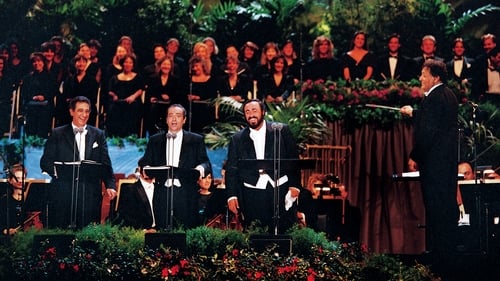
Himself - Conductor
It's not opera; it's not a pop concert; it's not Broadway. It's all of these and none of them. Once you accept the fact that this sequel to the original blockbuster concert recording is less about music and more about entertainment and the power of musical personalities, you can appreciate what you're hearing as an event--phenomenal and bizarre, momentous and frivolous. This is an occasion to celebrate the voices and egos of three huge superstars, and to have fun listening as Luciano Pavarotti, Placido Domingo, and Jose Carreras interact, bouncing lines off each other and playing to the overwhelmingly enthusiastic audience.

Conductor
Contemporary Rome is the setting for this unique and highly innovative version of Puccini's Tosca, performed in the Roman locations--and at the same times of day--as Puccini had written into his score. Thus the action opens in the beautiful 16th century church of Sant'Andrea della Valle at noon, where Cavaradossi (Domingo) is painting a portrait, moves to the Farnese Palace that evening where Tosca (Malfitano) dramatically stabs the lustful Scarpia (Raimondi) and finally in the battlements of Castel Sant'Angelo at dawn the following day where the last moments of the drama are completed.

Conductor
Contemporary Rome is the setting for this unique and highly innovative version of Puccini's Tosca, performed in the Roman locations--and at the same times of day--as Puccini had written into his score. Thus the action opens in the beautiful 16th century church of Sant'Andrea della Valle at noon, where Cavaradossi (Domingo) is painting a portrait, moves to the Farnese Palace that evening where Tosca (Malfitano) dramatically stabs the lustful Scarpia (Raimondi) and finally in the battlements of Castel Sant'Angelo at dawn the following day where the last moments of the drama are completed.

Conductor
Bizet's masterwork, Carmen, directed for stage by the Spanish actress Núria Espert.
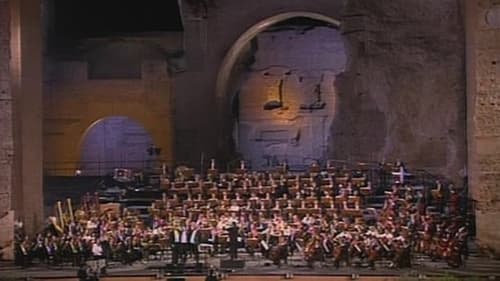
The Three Tenors is a name given to the Spanish singers Plácido Domingo and José Carreras and the Italian singer Luciano Pavarotti who sang in concert under this banner during the 1990s and early 2000s. This is the first collaboration of the trio, with a performance at the ancient Baths of Caracalla, in Rome, Italy, on July 7, 1990 – the eve of the 1990 FIFA World Cup Final. Zubin Mehta conducted the orchestra of Maggio Musicale Fiorentino and the orchestra of Teatro dell'Opera di Roma.

Conductor
Some concerts are important simply as occasions: The “Joint Concert Tel Aviv” was a celebration of reconciliation, a performance shared by the Berlin Philharmonic Orchestra and the Israel Philharmonic Orchestra that would have been inconceivable a few years earlier. Zubin Mehta takes a massive band consisting of both orchestras through performances of Ben Haim’s fascinating “Psalm”, Ravel’s “La Valse” and Beethoven’s “Fifth Symphony”.

Conductor
This live version of Puccini s superbly dramatic opera was recorded in Rome in the exact locations and at the precise times of day as Puccini had written into his score. The action opens in Rome's beautiful 16th-century church of Sant Andrea della Valle, where Cavaradossi (Plácido Domingo) is innocently painting, moves to the Farnese Palace where Tosca (Catherine Malfitano) dramatically stabs the lustful Scarpia (Ruggero Raimondi), and finally to the battlements of the Castle Sant Angelo at dawn the following day where Cavaradossi is cruelly killed, and Tosca takes her own life.
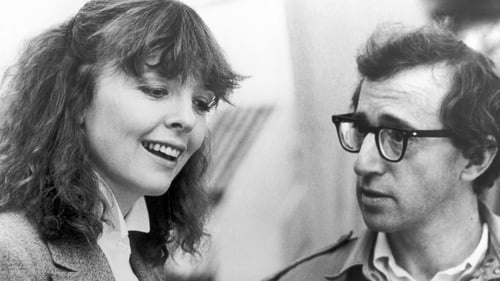
Conductor
中年男アイザックはTVライターとしては売れっ子だったが、シリアスな小説に転向しようと産みの苦しみの最中。彼は粋なレストランで友達とダベっている。共にテーブルを囲むのは大学教授のエールと妻のエミリー。そして現在、彼が同棲中の17歳の高校生トレーシー。どちらかと言えば彼女の方が夢中で、これ以上深みにハマるのを彼は恐れている。そしてある日、彼はMOMAを見物中のエールが連れていた浮気相手のメリーに恋をする…。

Conductor

Recorded live at the Dorothy Chandler Pavilion in 1977, this film showcases the Los Angeles Philharmonic performing Mozart's Bassoon Concerto in B-flat Major, featuring David Breidenthal on bassoon, with Zubin Mehta conducting. Highlighting the great strides the Philharmonic made under Mehta's direction, this program also includes performances of Bartók's Concerto for Orchestra, Dvorák's Symphony no. 8 in G Major and more.
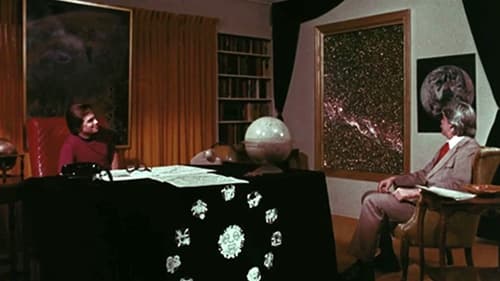
Conductor
Craig Alexander, a con-man "psychic" on the carnival circuit receives the opportunity to pilfer some legendary rubies in Kenya. His luck holds and he winds up the sole beneficiary of the ill-gotten wealth, which he parlays into an astrological broadcasting empire. But once he reaches the top, there's only one direction he can go...

Self
Christopher Nupen's record of the concert given by five young musicians in the new Queen Elizabeth Hall at London's South Bank, in 1969. The Trout is an exuberant explosion of youthful enjoyment in music: first from Schubert himself, who wrote his famous Trout quintet when he was 22 years old, and then from five young artists of the highest rank. They pick up the spirit of Schubert's music magnificently, both in preparation and rehearsal, and in their 1969 performance of the work, which has become one of the most remembered ever given. Includes personal introductions by Christopher Nupen and Jacqueline du Pré and features the legendary 1969 performance of The Trout with Daniel Barenboim, Itzhak Perlman, Jacqueline du Pré, Pinchas Zukerman and Zubin Mehta.

Self

Soloists Mitsuko Uchida on the piano, Zinovi Kaplan on the violin and Dudu Carmel on the oboe interpret the music of Bach ("Concerto for Violin and Oboe"), Beethoven ("Piano Concerto No. 4"), Stravinsky ("Pulcinella") and Schubert ("Rosamunde Overture"). They play under the able baton of maestro Zubin Mehta conducting the Israel Philharmonic Orchestra. Special features include artist bios and a documentary about the life of Johann Sebastian Bach.
